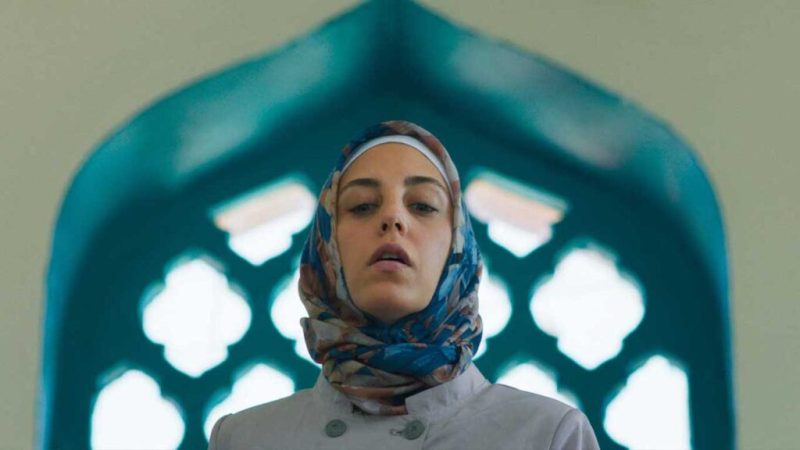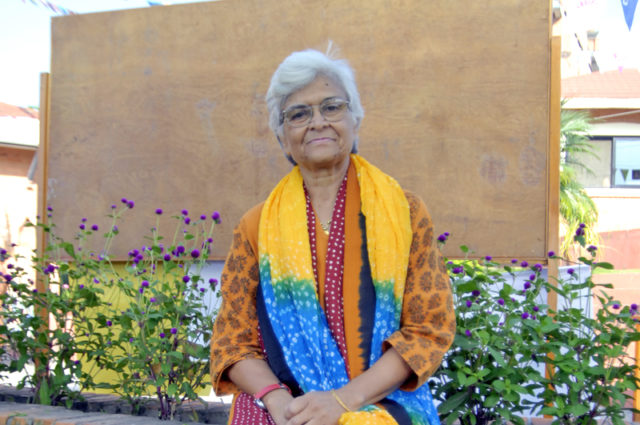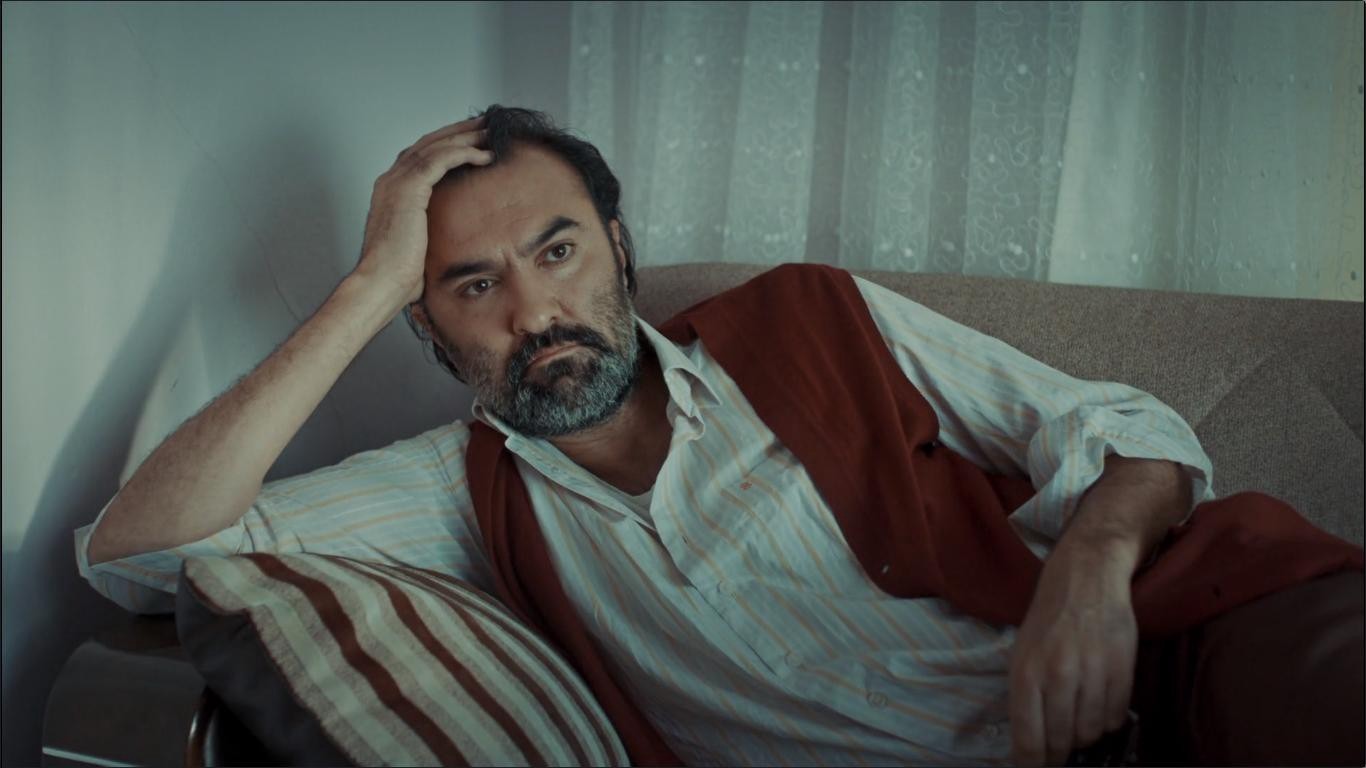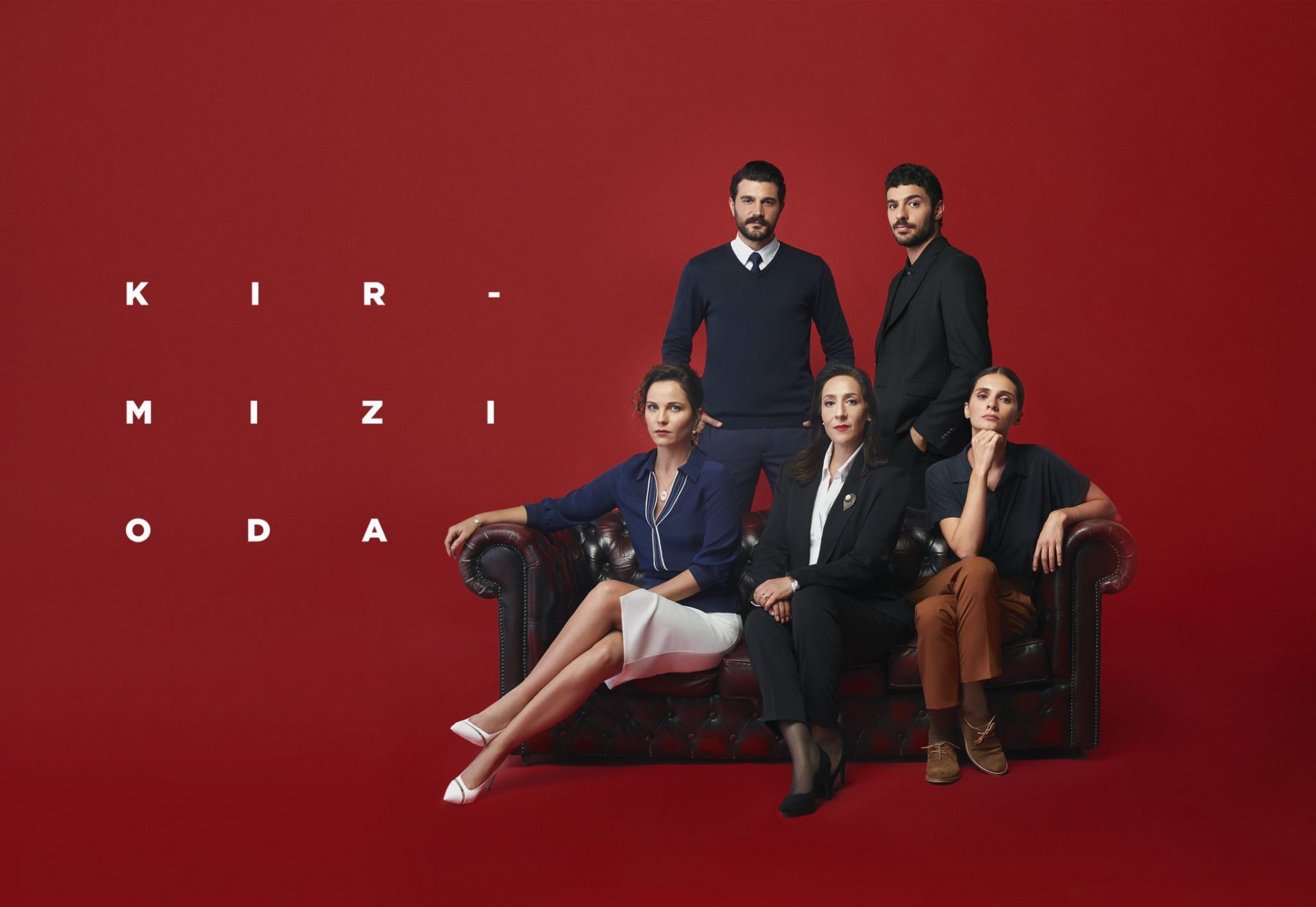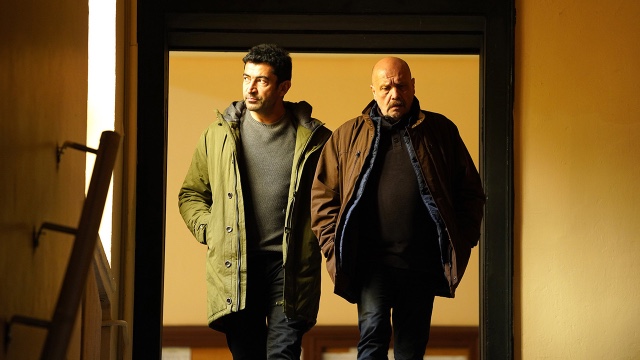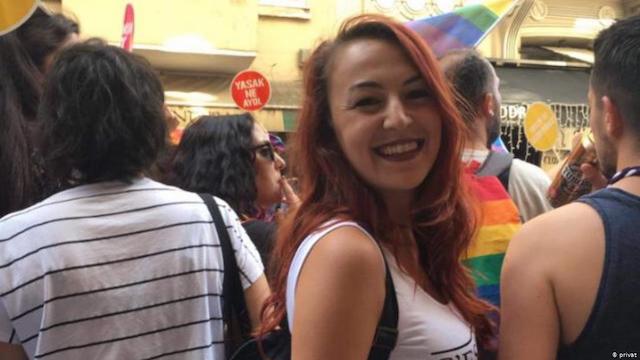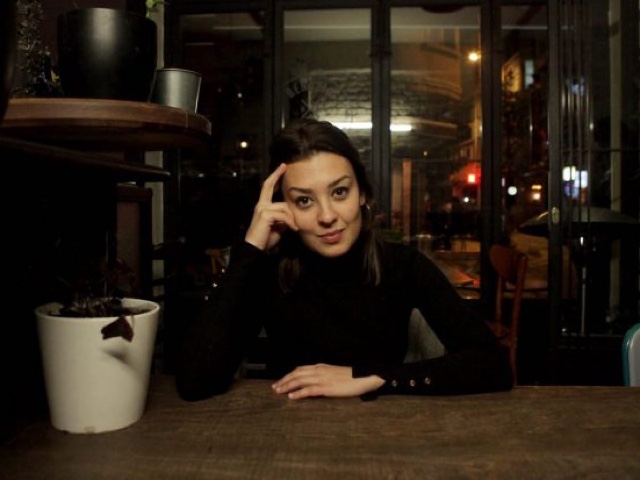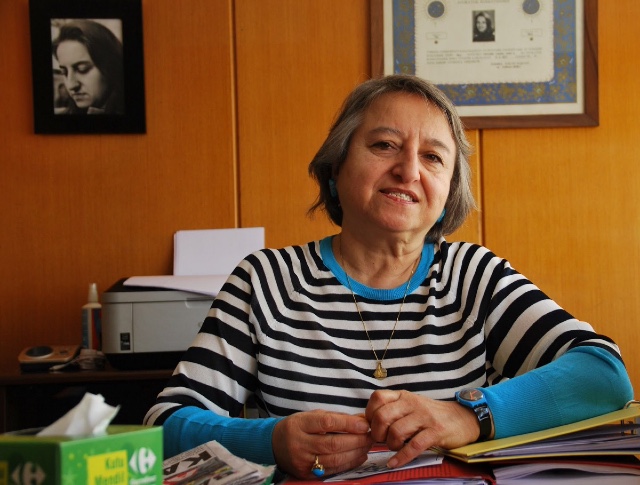Ethos tells us the story of a group of urban, working, lonely women whose paths have fatefully crossed without knowing each other. These are women who build the quotidian rather than construct a grand life narrative and order. They are cleaning, cooking, taking care of children and the sick, trying to unriddle emotions, and entertaining others on the screen; thus, constituting life itself. If I may use a cliché as depicted in the series, these women are lonely in a crowd. There are certain men with whom they try to develop intimate relationships, but these men prove to be far from understanding their complicated emotions and ways of perceiving the world, which contribute to their loneliness. And one of them is their creator: the screenwriter and director of the series, Berkun Oya.
There is another way out of this conundrum: to be curative for one another. However, their class, identity, belief and headscarf have built high walls between them, and Berkun Oya innovatively turns his camera to these walls rather than the customary way of approaching these stories through what these women share. Each woman carries the burden of representing a segment of a society on their shoulders. All characters in Ethos, women and men, are deep enough not to be symbolic but artificial enough not to be real human beings.
Let me summarize the story if you haven’t watched the series yet. Meryem works as a cleaner and lives with her brother Yasin, an ill-tempered ex-commando who has recently become impoverished, and his wife Ruhiye, who suffers from depression and has tried to commit suicide several times. Meryem occasionally faints, which brings her in front of a psychiatrist, Peri. During the first session, Peri solves the mystery: Meryem is in love with Sinan, whose house she cleans. Peri is supervised by her friend Gülbin and reveals an unmanageable hatred towards women wearing headscarves. That’s because Peri is a white Turk (beyaz Türk), what else could she be. She is also sure that her blue-eyed therapist Gülbin feels the same way, but she is wrong. It turns out that Gülbin’s older sister also wears a headscarf. Gülbin is not like the rest of her family and is in a casual relationship with Sinan but still… Meryem continues her sessions with Peri by avoiding the hodja of their local mosque, who has an immense influence over her family, and his probable objections to these therapy sessions. The presence of Meryem raises all of Peri’s problems to the surface. In the meantime, hodja’s homosexual daughter Hayrünnisa, who is into electronic music, runs into Yasin at a nightclub and the story goes on with characters’ paths crossing in such coincidences.
Before moving on with a detailed commentary on the story and characters, I would like to talk about the referential world the series and the universe it creates. I should also mention that this piece will contain a lot of spoilers. First of all, the name of the series (Bir Başkadır in Turkish, means “one of a kind”) gives us an idea. It alludes to a song (Ayten Alpman’s Memleketim, “My Homeland”) that connotes the military coup history of our country – a country whose social composition is unsuspectedly “one of a kind”. It’s almost as if Ethos is attacking our collective memory, especially the one created by cinema. The series starts with the camera following Meryem as she travels around in the city. This part reminds us of Istanbul depicted realistically in the urban migration themed films of the 70s-80s as a chaotic city interwoven along the lines of class and culture. From Banker Bilo to Köyden İndim Şehire (From the Village to the City), this scene signals the introduction of a character who struggles to survive in a city to which she doesn’t belong. However, a lot has changed since the 80s, and we watch Meryem confidently navigating the city scape. There are many references spread throughout the series. As if being inundated with Yeşilçam coincidences was not enough, we find ourselves looking at Atıf Yılmaz’s wide angle shots, and at scenes Nuri Bilge Ceylan or Zeki Demirkubuz have engrained in our minds with their mastery of making their ensnared characters express existential dreads with a limited vocabulary, a skill Berkun Oya cannot demonstrate as well. Then, we are swept into a void where strong emotions are intuited but cannot be seen, reminding us of Çoğunluk (Majority). We jump from the allegorical world of Sarmaşık (Ivy) to Kelebekler’s (Butterflies) commentary on family. The first episode ends with a video recording of a Ferdi Özbeğen concert.
This recording of Ferdi Özbeğen depicts a scene of what we have come to refer to as “old Turkey”. A nostalgic and romantic moment without a worry. Ferdi Özbeğen, just like the characters in Ethos, carry an eternal social burden on his shoulders. He is the son of an Armenian mother and a migrant father born in Crete. Although it is not a secret, people seldomly talk about the fact that he grew up with Christian beliefs, started his education at an Armenian school and used the name “Ferdinand” prior to his performing career. A fact better known by many is that he was openly gay. Since he could not legally marry Hilmi Mutlu, the man he decided to spend his life with, he ended up legally adopting him. Everyone in Turkey knows about all this but turns a blind eye. Because if they don’t, they won’t be able to take pleasure in Özbeğen’s talent, for he is both Armenian and gay – the two identities most despised in this society. Berkun Oya turned his lens towards those identities both the society and fiction are trying to forget; those that individuals can never rid of like a constant, throbbing pain in the spine.
Stories of Berkun Oya create a void for us to fill. This style yields a reciprocal process between the creator and the viewer and it is beautiful. At the same time, this style does not lend itself for critique easily. Whenever you think Oya is making a proposition, he can always deny it. It pushes us not only to cognize but also to intuit. So does feminist critique, and I will do the same. Let me describe what watching Ethos was like for me: Five women, unlike one another, are in a room having a conversation in the presence of Berkun Oya. Characters are trying to explain themselves and their problems but Oya only hears what he wants to hear. For example, when Peri the psychologist says, “I am a lonely woman who, despite being an adult, has not resolved her issues with her family and cannot build rapport with others”, Oya interprets it as “right, that’s because you are upper-class”. When Meryem says “we love each other as a family but we cannot help one another”, Oya retorts “that’s because of poverty, ignorance and your rural background”. The characters cannot live without being exposed to the presumptuous comments of an outsider.
Another example is Gülbin, an educated Kurdish woman who has to confront her pro-Justice and Development Party (AKP) sister. Though, when we look at Gülbin closely, we see that this confrontation is not at the center of her life and it is rather difficult to follow how a disagreement on how to best take care of their disabled brother leads to such a confrontation. We sort of get it but the dichotomy Oya tries to create is so far-fetched and didactic that we cannot relate to it. It’s true that Gülbin and her family are so different that it looks as though they come from different countries. Most probably Gülbin grew up with a need to belong. On the other hand, from very early on, we see Gülbin in an unsatisfying relationship that she seems to tolerate. When she is not in that relationship anymore, she tells her friends that “the worst was when I could not go back home and woke up asking myself “what am I doing here”. Why does Gülbin choose to have “okay” sex at least once a week with this mediocre man – with no apparent appeal or interest in good conversation, someone so unremarkable – to wake up and find herself estranged to the whole situation? As the characters are about to go through a transformation in their personal lives the story turns to something they cannot change, that is their identities, and imprisons them in that box.
This imprisonment is familiar to the viewer. We are seen as a statistic or a piece of a multicolored pie chart rather than a meaningful member of the society and a valuable subject. Alevi votes go to Republican People’s Party (CHP), or with one letter we are considered an Imamoğlu supporter. We are invited to meetings, gatherings and panels as a token, just so that “there will be a woman/LGBTI+ person in the room”. If we are to shoot a film, it’s considered women’s cinema; if we are to make music it’s called Kurdish music; if we are to write a novel it goes in the queer literature box. But, whatever they do is art. When they – Berkun Oya, Nuri Bilge Ceylan, Seren Yüce, Zeki Demirkubuz etc. – tell a story, that story is about the society. They tell the story of humanity, the rest makes do with little narratives.
Then, of course, there is also poverty. Some of us always live on the edge of survival, “below (or on) the poverty or hunger threshold”, unseen. Ali Şimşek in an article he wrote for EK Kültür claims that Meryems in real life will not like Ethos much due to the cinematic style adopted, as opposed to the style of mainstream domestic TV productions. I disagree, the reason is different. If you were poor, would you like to watch a series built on the premise best explained as “yes, your living conditions are horrible compared to ours, but believe me when I say you are better and happier people; we are lonely and disgraceful.” Or would you rather watch Çukur (The Pit) where poor people like you, are sometimes good and sometimes bad, and they rule their territory like a lion in a jungle with a power to destroy their prey -just like the people you are acquainted with? Let me repeat that we are no longer in 1980s, people such as Meryem know this city and its realities like the back of their hands and Neşeli Günler (Happy Days) is nothing more than a souvenir of middle-class nostalgia.
Surely Meryem likes Çukur, Esra Erol and similar productions that appeal to the masses. She goes on a trip from the worlds of Esra Erol or Çukur to the orderly but clumsy world of Ethos. She travels from the world of his brother, whom I think the viewer should appreciate for not beating up the women in his life, to the world of Sinan, who doesn’t know much about life beyond how to make coffee, and even that he gets his cleaner to do for him. One moment, she is conversing with the fatherly and tolerant hodja figure, and the next she is sitting in front of her shallow psychiatrist Peri, who does not know how to help women wearing headscarves and whose personal problems make the viewers cringe in their seats. Peri watches her weight; she follows a gluten-free diet and practices yoga. She attends events that does not interest her, just to meet men. She is still angry at her parents like a child and she is not comfortable with her feelings towards veiled women. Berkun Oya, not having caricaturizing Peri enough, adds an interest of New Age in this nonbeliever. By doing so, Oya has rendered the character blind to the obvious contradiction, thus, stupid. In sum, the character is no longer an educated woman with a vocation but a cliché spinster. The context shifts to class and we are forced to hate Peri and everything she symbolizes. In other words, as the viewers of Ethos, we are forced to hate, or at least condescend, many women we know who are characterized as Peri.
But Meryem is not like Peri. Meryem is there to show us that happiness and meaning in life are hidden somewhere else. Perhaps, Peri would have been happier if she could come to terms with wanting to get married, seeing a ring on her finger. Gülbin clearly tells Peri that she is jealous of Meryem but to no avail. Peri’s materialist world, which does not approve of the likes of the hodja, does not allow for it. The fourth episode ends with a footage from Maurice Pialat’s short documentary Bosphore. Bosphore is one of the six documentaries the director shot in Istanbul in 1964. What distinguishes this documentary from others is that it focuses on the Bosphorus as a line demarcating Europe and Asia, modern and traditional, East and West, the Ottoman Empire and the Republic of Turkey. Berkun Oya, once again, forces another context which is not signaled in the story. The only connection between the story we watched and Bosphore is that Peri’s family lives in a waterside mansion on the Bosphorus. But wait, we have orders from high places to ponder upon modernism. It’s as if Oya is saying, “look at the lesbian daughter of the hodja you did not approve of, nobody is as free as her!” He dictates us, especially the women viewers, what he has learned from the universe he has created. He weaves women’s relationships to belief and religion as a back story to the main message; as if religious oppression, veiling, unveiling, coming out as a lesbian are not huge social problems in and of themselves.
You might have heard that a lot of people, after watching Ethos, accused Oya for considering himself a sociologist. It is a rather unpleasant comment; to hinder fiction from making a statement about society is to render it useless. The problem does not stem from these observations or statements but from transforming people, women into props, by detaching them from their conditions of life in order to justify the making of a grand proposition. The narrative Berkun Oya creates with these contrasts does not resonate with real life. In the Ethos universe, psychiatry is contrasted with spirituality. One wonders who in real life has access to psychiatry to make a choice between psychiatry and spirituality. Gülbin is contrasted with Peri; Meryem with Sinan, Sinan with Yasin; and Yasin with the lover of the hodja’s daughter. These contrasts lacking in nuance and consideration do not contribute to the story; they serve to justify the grand proposition.
After presenting all these representational characters, fictional conflict and women as objects of hate, Oya grants power to women characters by giving them small triumphs. To tell the truth, these triumphs are, again, based on the values of a man’s world. For example, the director must have thought that Sinan has humiliated Gülbin, hence, when Sinan overhears a conversation in which Gülbin is making fun of him, he confronts his own emptiness and gets depressed. It should also be noted that no screenwriter born in this country can make a story flow without a character overhearing. Did we really think Gülbin was humiliated by Sinan? Who is Sinan anyway? It was a triumph in itself to get rid of this cliché that pops up, at some point, in the lives of every woman who desires men. But Oya is determined to answer the question “who is Sinan anyway?” We are invited to the oedipal dilemmas of Sinan, who is desired in one way or another by three different women throughout the series, and see that he is more miserable than we have ever thought. What a surprise! We learn nothing new or unexpected about Sinan. The answer to the real question is left hanging in the air: What did these women see in him?
“Triumphs” unravel one after another. Hayrünnisa’s lover stabs Yasin, who had beaten her up. It should not be considered a grand triumph, though, Yasin was only trying to do his job when he harmed her. On top of that, when he complained to Hayrünnisa’s father, there were no arguments, since Yasin had a heart of gold although he was a little macho. In real life, any family – religious or not – would at least be upset to learn that a young woman has gone to a nightclub without her father’s knowledge, then got busted in the bathroom making out with another girl and beaten up by the security. And here, I don’t want to limit real life to people living in Turkey, I am talking about the world in which capitalism and patriarchy exists… Then another triumph: Yasin’s wife Ruhiye, who is still traumatized by the sexual violence she survived as a child and wanders around like a ghost throughout the series, starts to feel better as soon as she hears that the perpetrator is not dead, and that her husband rendered him disabled years ago, and he is a disgrace to the whole village and he leads a miserable life. How relieving could it be for a woman with a history of violent trauma to learn that the man she lives with is inclined to violence… We also see that the rapist is a remorseful, Kurdish underdog whereas Yasin was a commando – yet another contrast we’re supposed to find interesting. Oya must have decided that the masculine idea of vengeance is as appealing to women as it is to men, the cliché character trajectory is completed with a sloppy finale.
What about Meryem’s triumph? She gives up on her object of desire, Sinan, and finds happiness in a true romance. All she wanted was a ring and she finally gets it. As you know, dreams of this small scale are only for women and the poor. The imam, Meryem’s husband to be, is also poor (and interested in Jung – another genius, Hakan Günday, must have helped in character development). In the end, she manages to steal the heart of her object of desire. Her brother Yasin is poor, too, but it looks like he married the woman who was the object of his desire. They earned the right to do so by being decent, though the extent of their decency is open for discussion. Meryem as a naive, clever, skillful, enduring woman who knows how to pursue the joys of life, has to make do with the imam whom she found ugly, talkative, presumptuous and boring at first. Well, the story deemed Meryem worthy of a platonic love rather than desire, didn’t it? What has a veiled woman got to do with desire anyway? Her relationship with sexuality and desire is restricted to leaving a muslin for Sinan to masturbate to and feel guilty afterwards.
Sure enough, the real triumph is Berkun Oya’s in this story. First of all, for having the capability to turn a partially deep story into an instant hit with all its details and references. Then, for showing us how much we missed talking about the society rather than getting sick and tired of talking about those in power. Moreover, for pushing us to talk about ourselves, and about people we might not know in person and yet have ideas about. But still, the fact that all this talent, labor and detail have been used to arrogantly communicate not-so-new observations that have been discussed at least a thousand times before, shows that men’s storytelling, the one we are accustomed to, has not changed a bit. In sum, we have seen this film before, but it was never shot this well.
Translated bu Deniz İnal.

